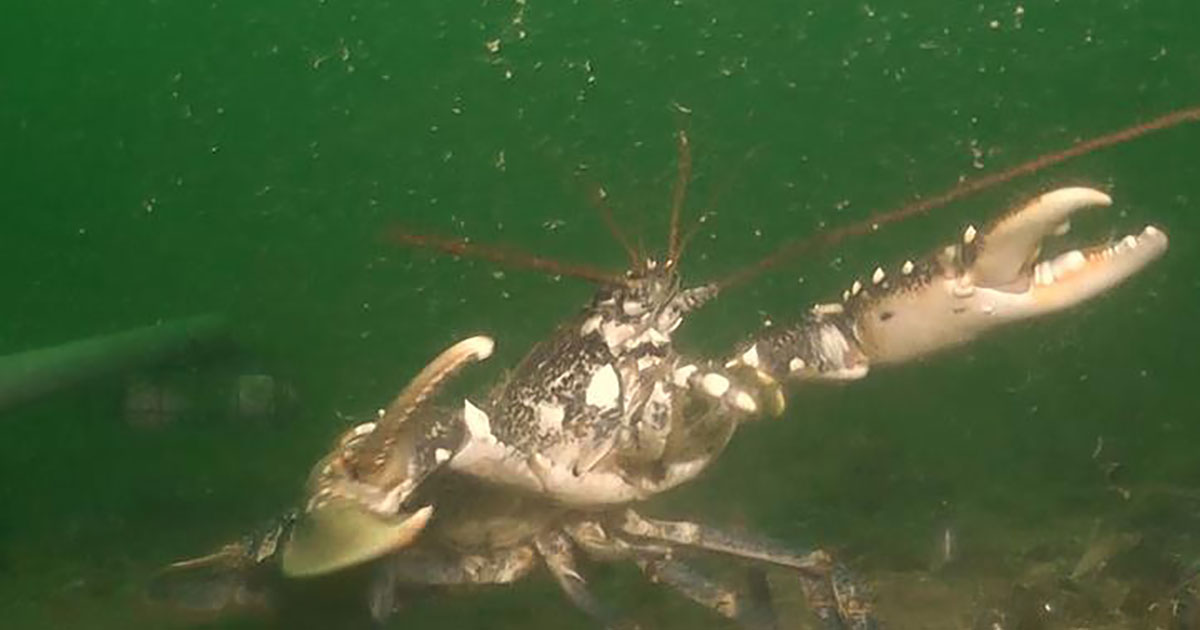Scientists, mussel farmers and fishers on the Devon and Dorset coast are this month beginning the tagging work that will help them assess the impact of offshore aquaculture on the general health of the ocean.
The Ropes to Reefs project—funded through the Fisheries Industry Science Partnership (FISP) scheme, part of the Government’s UK Seafood Fund—is looking to assess the wider benefits of the UK’s first large-scale offshore mussel farm, located in Lyme Bay.
It is being led by scientists at the University of Plymouth working with a range of partners, including producers such as Offshore Shellfish Ltd, Scallop Ranch Ltd, Biome Algae Ltd and various local and national fishing and conservation organizations.
During March, work is beginning to tag lobsters living in and around the mussel farm so the project team can gain a better appreciation of their movements and the habitats they favor. This will be followed up over the coming months with the tagging of thornback ray, black bream, and thick-lipped mullet, giving researchers a clearer picture of the mussel farm’s impacts on various species that are critically important to the region’s fishing industry.
The project has been developed to fill scientific knowledge gaps on fishes and crustaceans in the region, to better inform future management strategies, and to understand how aquaculture installations such as the offshore mussel farm may benefit surrounding fisheries.
It is also envisaged it will support the aquaculture industry to meet ambitious targets around sustainable food production, in line with the United Nations Sustainable Development Goals. The Ropes to Reef project builds on more than a decade of research at the University, funded by Offshore Shellfish Ltd, with a previous study—published in 2022—suggesting that mussel farms could have wider environmental benefits.
John Holmyard, Managing Director at Offshore Shellfish Ltd, said: “The biggest environmental gain from offshore mussel farming is that it produces large quantities of high-quality protein with a lower environmental footprint than virtually any other food production method. So what we are getting is food provision with zero land use, zero fresh water use, zero pollution, zero fertiliser, zero chemicals, zero medication, zero feed input, zero or very low net carbon emissions. On the flip side to that, it delivers positive ecosystem services, increased biodiversity, habitat creation and the spillover benefit to surrounding fisheries. When you add up all of that, it makes a very powerful case for this type of food production.”
The project will use cutting edge, cost-effective and non-destructive remote sampling techniques to monitor the seabed and ocean under and around the farm.
This includes state-of-the-art echo sounder and multibeam sonar, along with ground truthing cameras deployed from local fishing boats, both of which will produce high resolution data. Researchers will also use technology developed through the FISH INTEL project, another initiative led by the University, to track the tagged fishes and crustaceans using the world's first multi-farm aquaculture telemetry network.
Greg Clifford, Director of Scallop Ranch Ltd and one of the Ropes to Reefs project partners, added: “Anecdotally, we often say that scallop farms are a breeding ground for fish. They have creatures growing on all the equipment we have in the water, some living and growing on or around it and others feeding on the life it houses. Ropes to Reefs will add the science and rigor to this, quantifying and rationalizing what we see as we go about our daily work. When we truly understand how the farm interacts and supports the surrounding ecosystem, we can build a case for why low-trophic aquaculture is such an important part of the modern world.”



